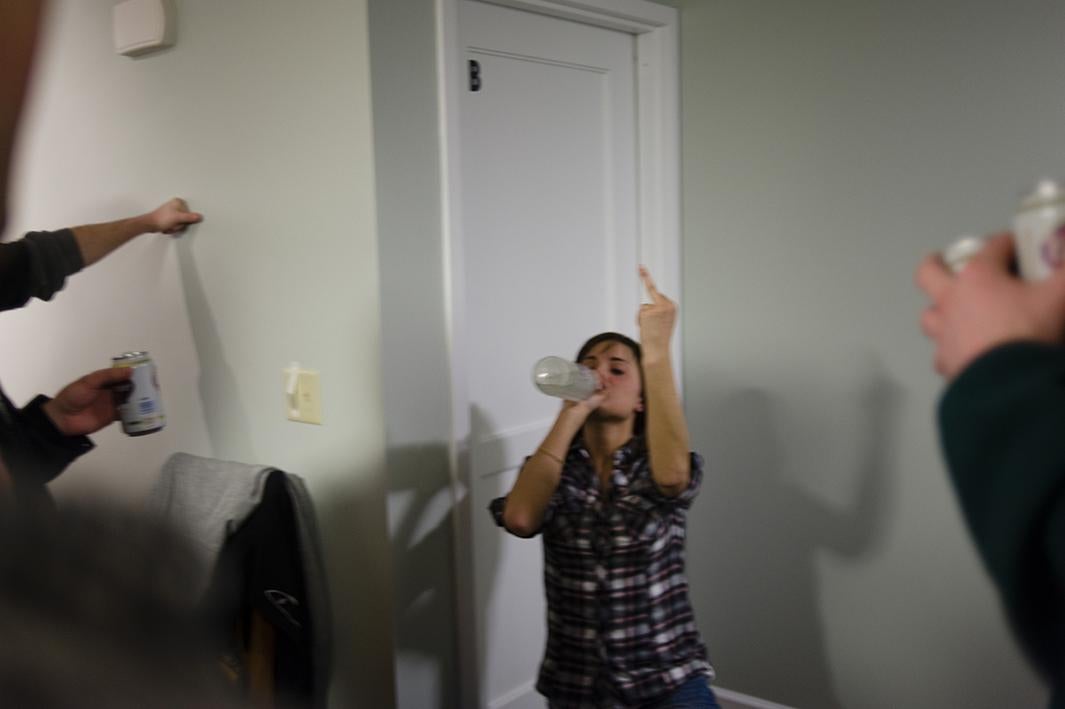Recently, Slate columnist Emily Yoffe wrote a story advising college women to drink less at social gatherings to lower the risk of sexual assault.* The story pushed a few buttons and ignited a dialogue about drinking culture all over the Internet. For three years, photographer Amanda Berg was steeped in that same dialogue. As a junior at Rochester Institute of Technology, she began photographing her female friends and acquaintances at off-campus house parties to explore the trend of binge drinking for her series “Keg Stand Queens.”
As Yoffe and Berg both point out, undergraduate drinking has increased alongside instances of sexual assault and rape. While Berg, like Yoffe, said she’s concerned about that correlation, she said as a documentarian she’s not interested in pointing fingers or proposing solutions. “I think women are drinking more like men. I’m not sure why, and I’m not sure it’s empowering,” Berg said via email. “Talking about the relationship between alcohol and gender equality today feels controversial, like one has to be careful, and that’s exactly why it is worth confronting—there must be something at stake, something important here to understand.”
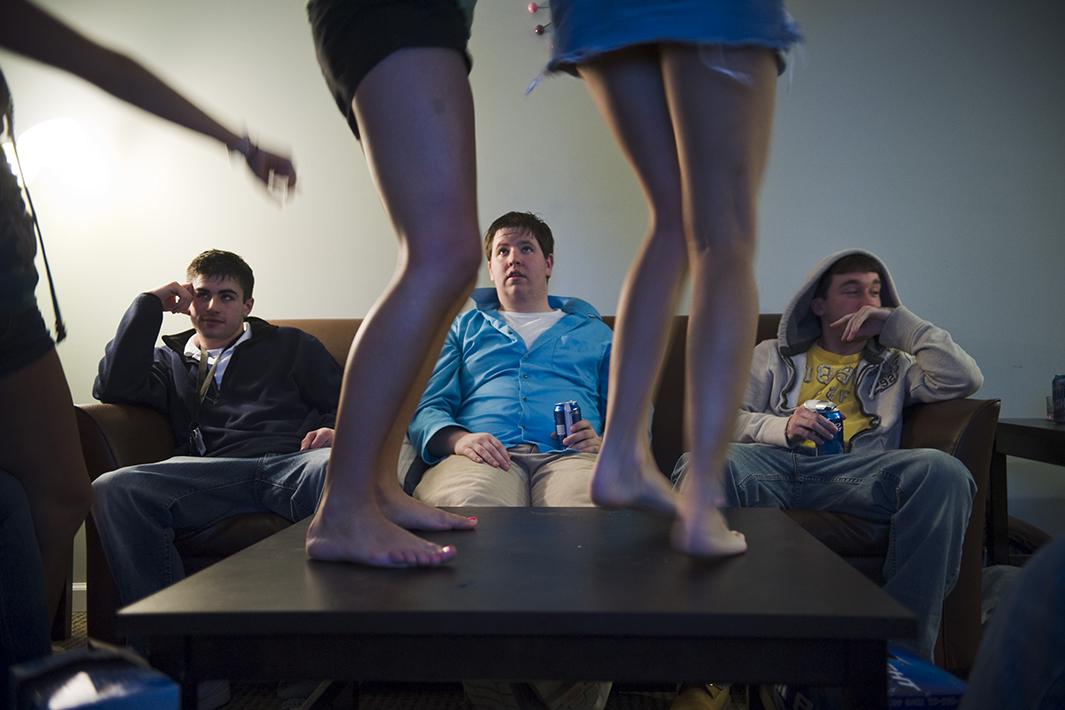
Amanda Berg/Alexia Foundation
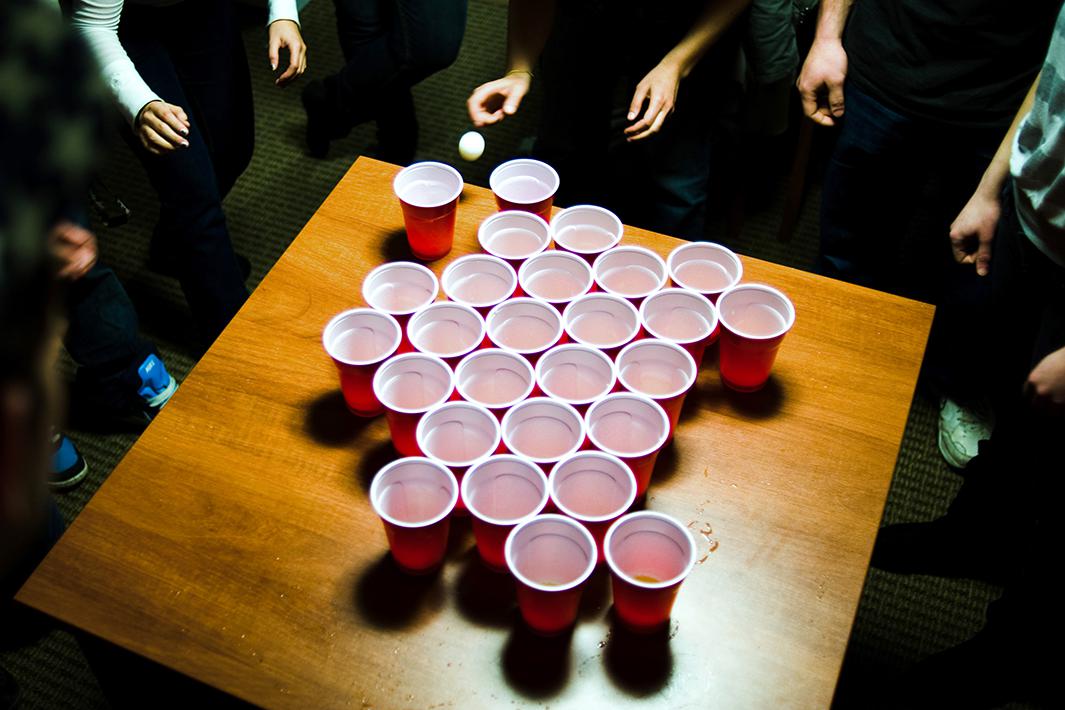
Amanda Berg/Alexia Foundation
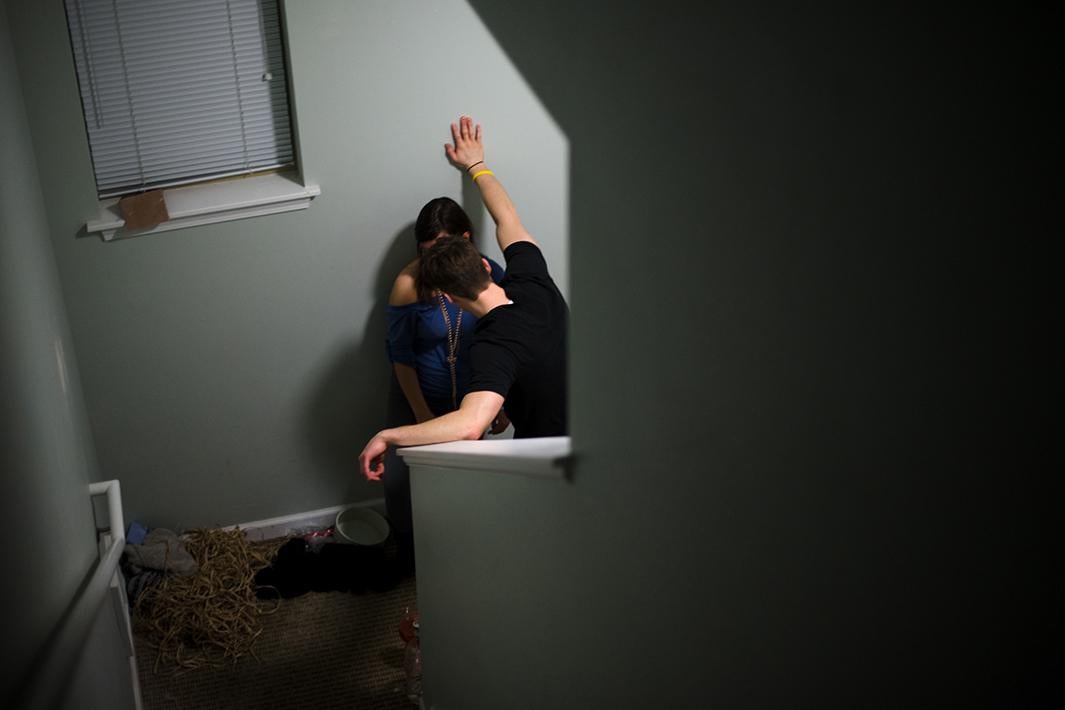
Amanda Berg/Alexia Foundation
Berg said the project was an effort in part to better understand her own relationship to alcohol in college. Though never a heavy drinker, Berg said she regularly went to parties and felt uncomfortable about what she was seeing. To completely devote herself to the project, Berg stopped drinking entirely and went to parties specifically to document rather than socialize. She said her role as an observer felt alienating and occasionally disconcerted people at the parties. But Berg said she was driven to pursue the series by what she was learning about the prevalence and special dangers of binging for women. “In the beginning I was really motivated by statistics, and that gave me the confidence to do the project. Now I’m much more interested in not the specific statistics behind everything but more the power pictures have to start a conversation and give people a space to talk about things,” she said in a phone interview.
Berg said that although there’s plenty reason to be concerned about binge drinking, she witnessed another side of partying that’s often overlooked. “I also saw a lot of people having a lot of fun and making a lot of friends and really letting loose, so there is an element of celebration that’s really healthy and positive too,” Berg said.
More recently, Berg began photographing in her New Jersey hometown. At an engagement party there, Berg captured a 13-year-old girl privately mimicking a popular college drinking game with a plastic cup. The image resonated strongly with Berg, who chose to place the image at the conclusion of her series for what it represents about the ubiquity and cyclical nature of drinking culture. “It seems like the end is the beginning, and it just goes on,” Berg said.
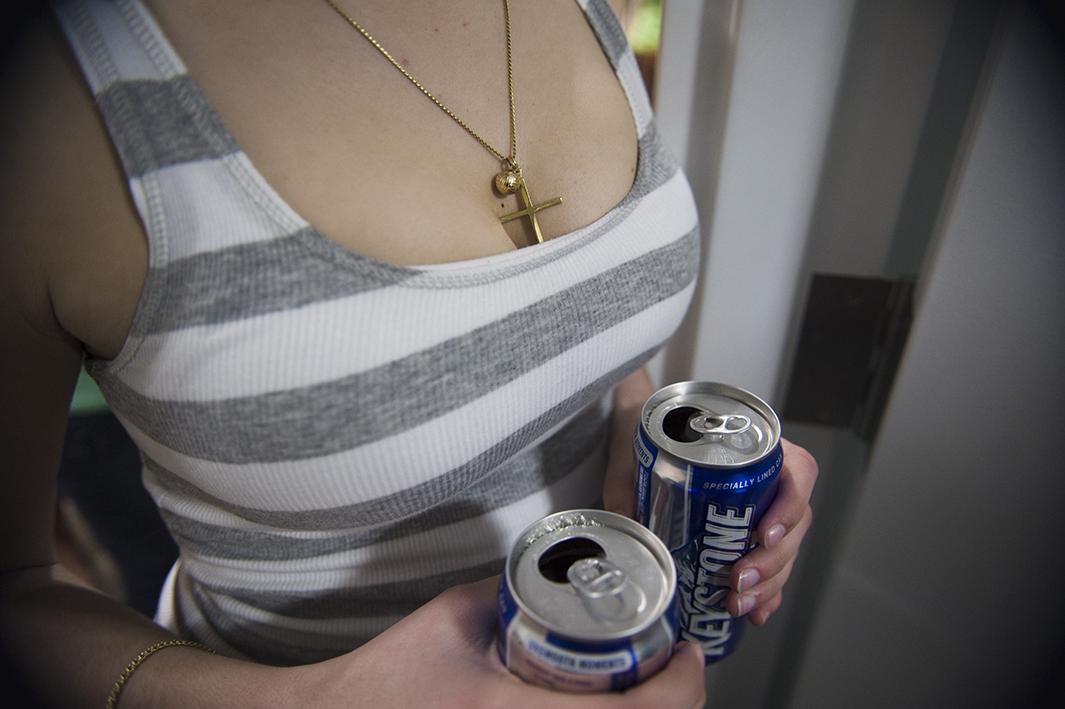
Amanda Berg/Alexia Foundation
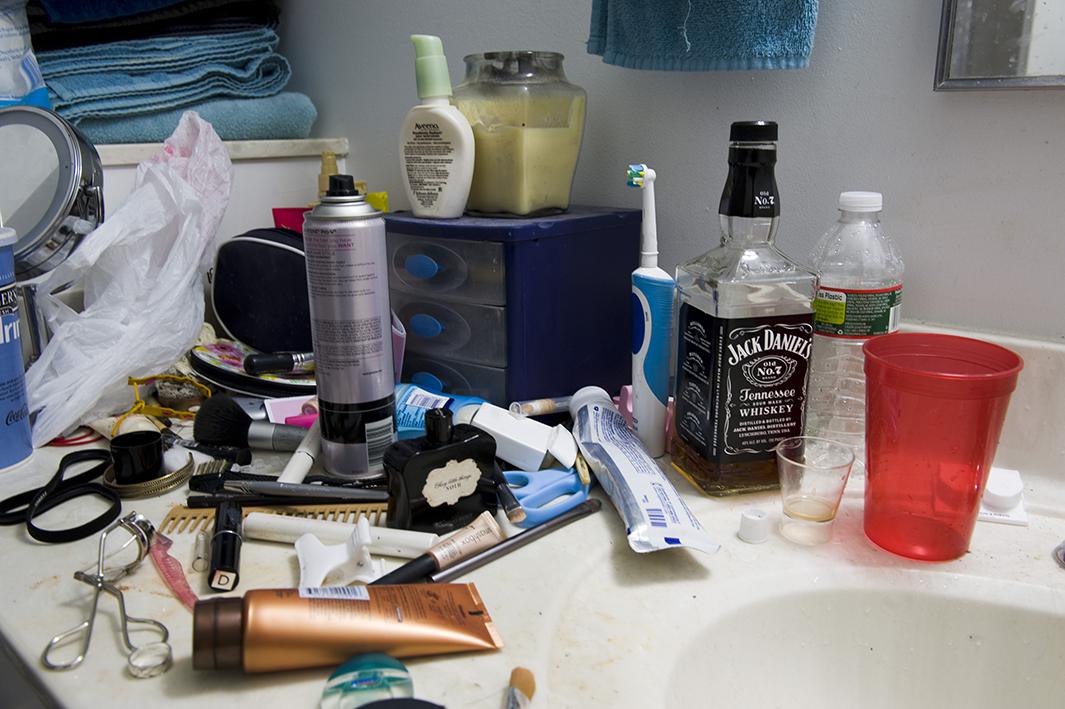
Amanda Berg/Alexia Foundation
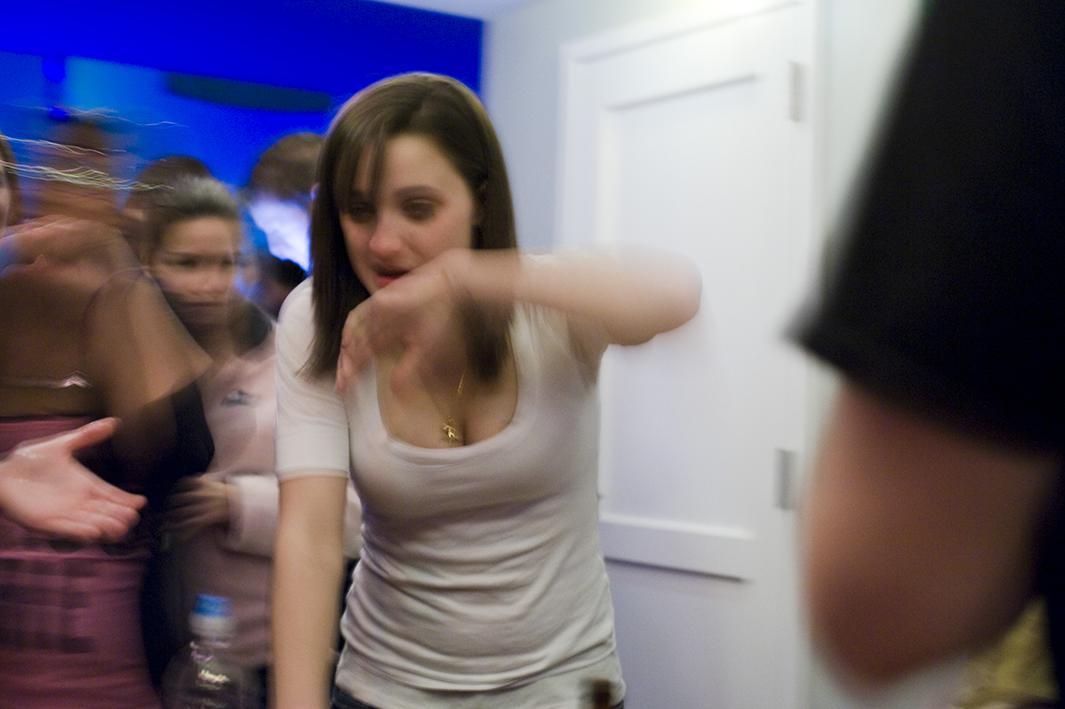
Amanda Berg/Alexia Foundation
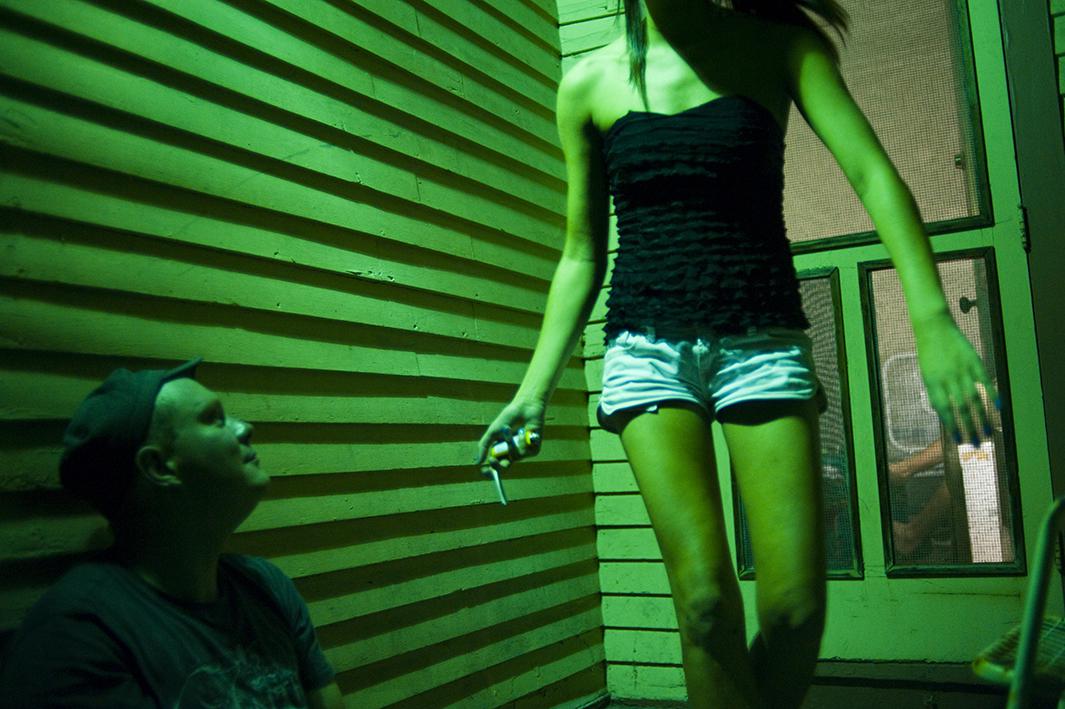
Amanda Berg/Alexia Foundation
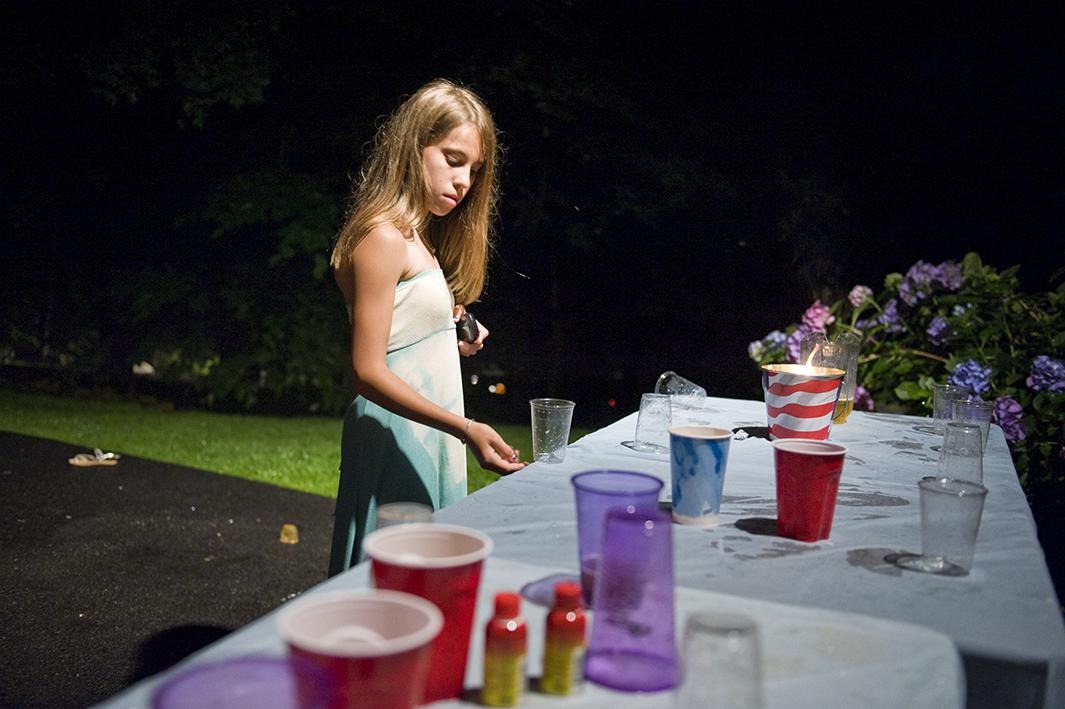
Amanda Berg
Correction, Nov. 4, 2013: This post originally misspelled Emily Yoffe’s first name. (Return to the corrected sentence.)
